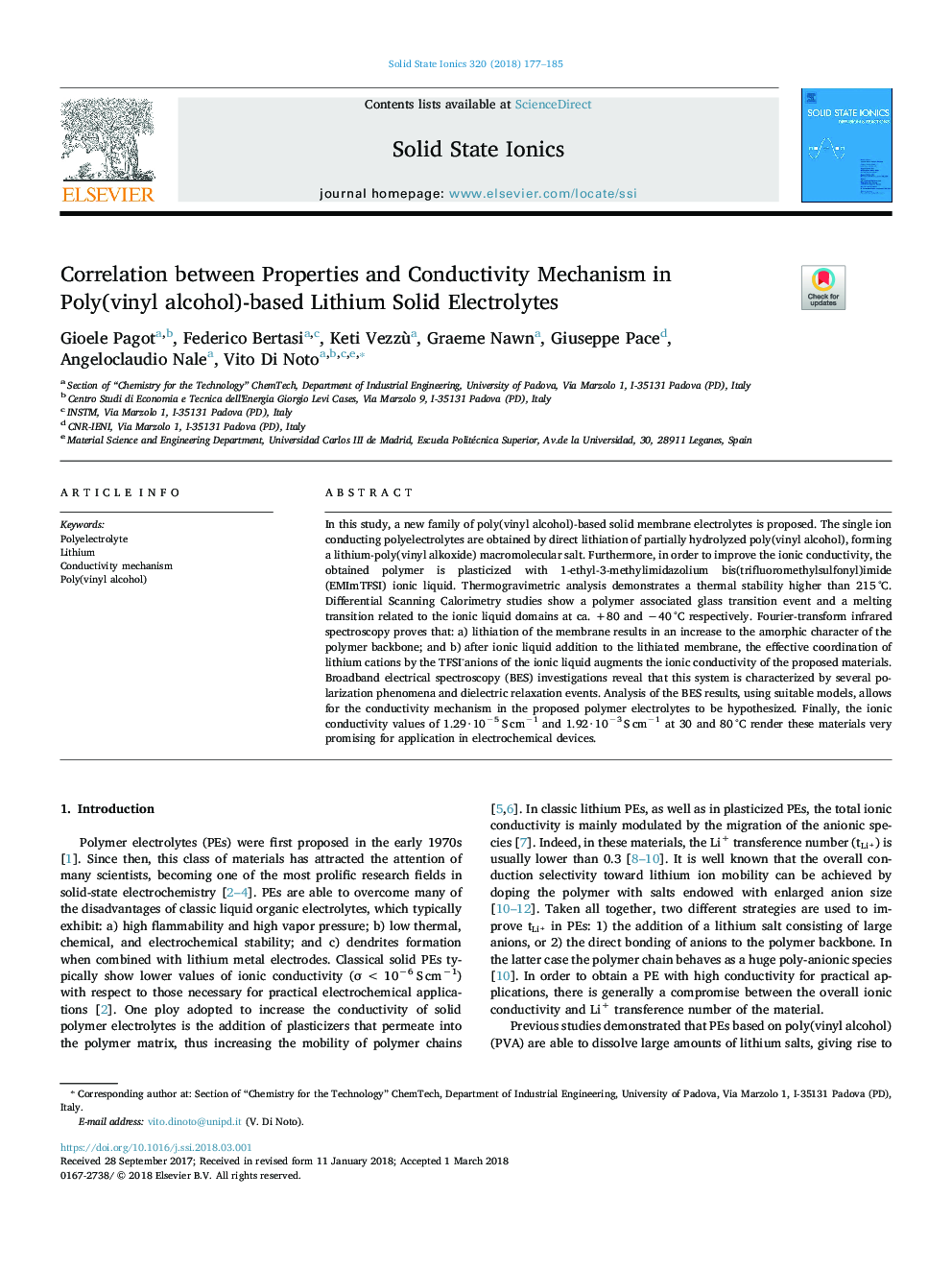| Article ID | Journal | Published Year | Pages | File Type |
|---|---|---|---|---|
| 7744302 | Solid State Ionics | 2018 | 9 Pages |
Abstract
In this study, a new family of poly(vinyl alcohol)-based solid membrane electrolytes is proposed. The single ion conducting polyelectrolytes are obtained by direct lithiation of partially hydrolyzed poly(vinyl alcohol), forming a lithium-poly(vinyl alkoxide) macromolecular salt. Furthermore, in order to improve the ionic conductivity, the obtained polymer is plasticized with 1-ethyl-3-methylimidazolium bis(trifluoromethylsulfonyl)imide (EMImTFSI) ionic liquid. Thermogravimetric analysis demonstrates a thermal stability higher than 215â¯Â°C. Differential Scanning Calorimetry studies show a polymer associated glass transition event and a melting transition related to the ionic liquid domains at ca. +80 and â40â¯Â°C respectively. Fourier-transform infrared spectroscopy proves that: a) lithiation of the membrane results in an increase to the amorphic character of the polymer backbone; and b) after ionic liquid addition to the lithiated membrane, the effective coordination of lithium cations by the TFSI-anions of the ionic liquid augments the ionic conductivity of the proposed materials. Broadband electrical spectroscopy (BES) investigations reveal that this system is characterized by several polarization phenomena and dielectric relaxation events. Analysis of the BES results, using suitable models, allows for the conductivity mechanism in the proposed polymer electrolytes to be hypothesized. Finally, the ionic conductivity values of 1.29â¯Â·â¯10â5â¯Sâ¯cmâ1 and 1.92â¯Â·â¯10â3â¯Sâ¯cmâ1 at 30 and 80â¯Â°C render these materials very promising for application in electrochemical devices.
Related Topics
Physical Sciences and Engineering
Chemistry
Electrochemistry
Authors
Gioele Pagot, Federico Bertasi, Keti Vezzù, Graeme Nawn, Giuseppe Pace, Angeloclaudio Nale, Vito Di Noto,
